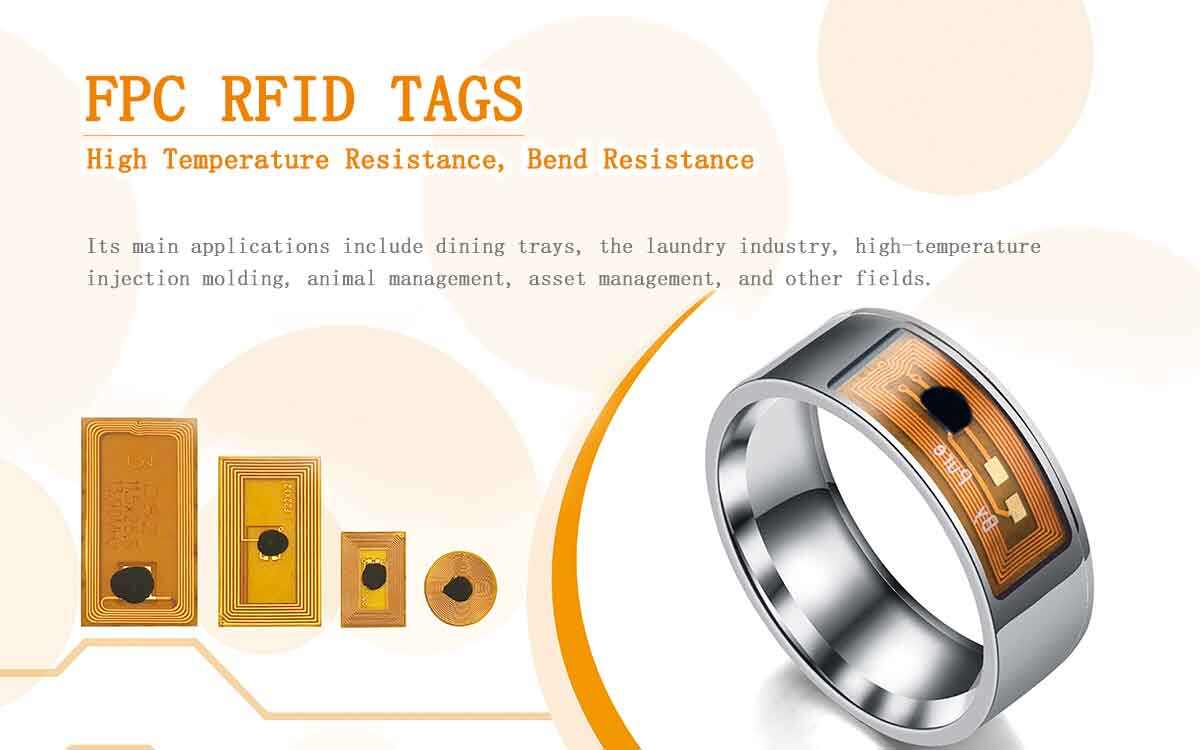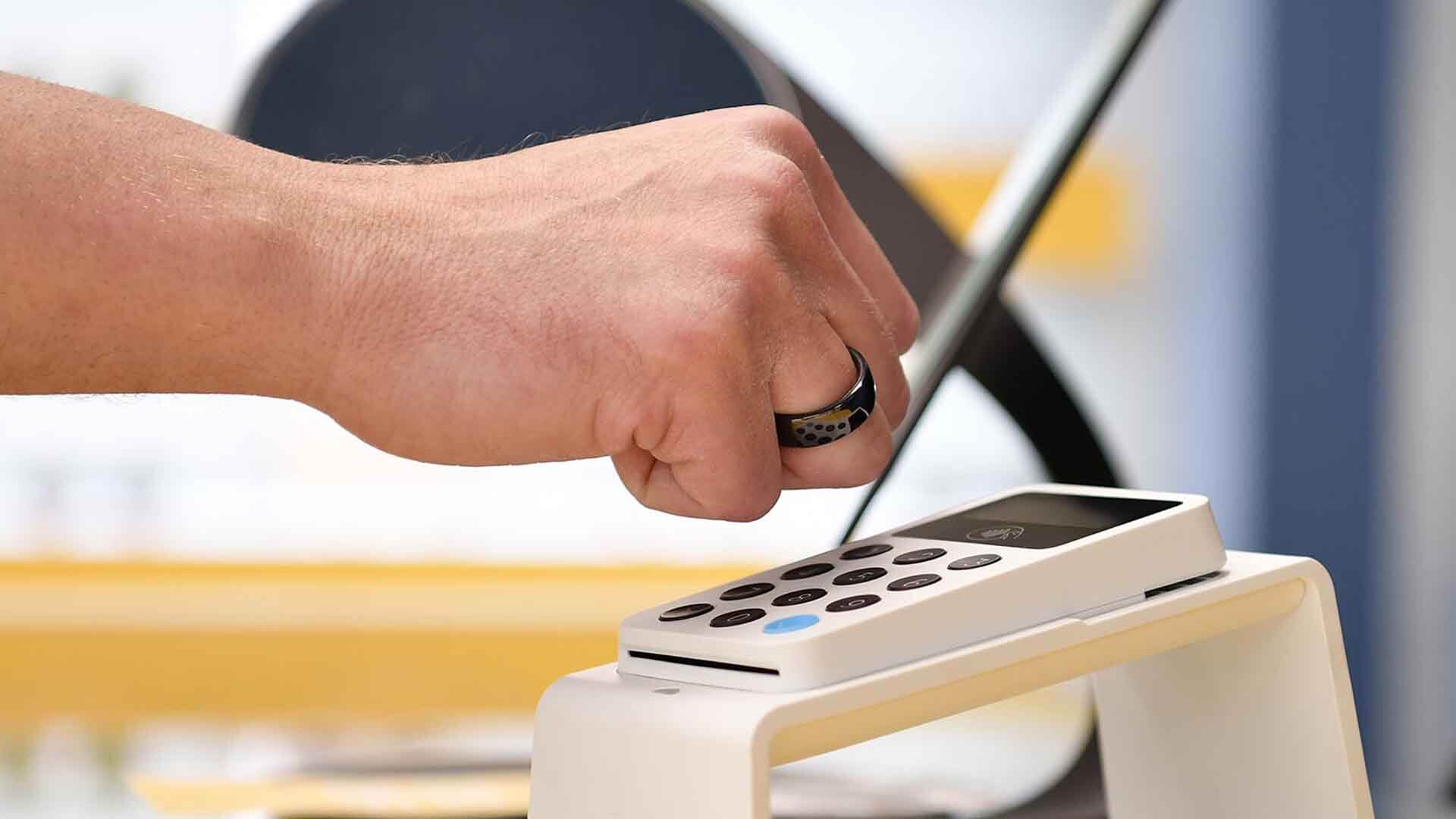With the widespread adoption of the Internet of Things (IoT) and smart identification technologies, RFID tags have become critical in areas such as item management and anti-counterfeiting traceability. FPC (Flexible Printed Circuit) electronic tags, with their flexible substrates and exceptional physical properties—such as high temperature resistance, bend resistance, chemical resistance, and pressure resistance—can adapt to harsh environments where traditional rigid PCB tags fall short. As a result, they are increasingly gaining attention in the market.
This article systematically analyzes the technical advantages of FPC electronic RFID tags from perspectives such as product characteristics, and tailored services. It also explores their applications across industries including dining tray management, laundry, high-temperature injection molding, animal management, asset management, and smartwatches.
FPC technology originates from flexible circuit board design, and its application in RFID tags benefits from the durability and adaptability of flexible substrates like polyimide (PI). Compared to rigid PCB tags, FPC electronic tags excel in scenarios involving high temperatures, bending, and chemical corrosion. As the global RFID market grows rapidly, FPC RFID tags, as an emerging force in this niche, are gradually penetrating industrial and consumer applications, including the field of smart wearable devices.

Characteristics and Application Analysis of FPC Flexible Electronic RFID Tags
FPC electronic tags possess the following core features:
High Temperature Resistance: Made with high-temperature-resistant substrates like polyimide, they operate stably in environments above 200°C, with some models enduring up to 300°C. This makes them ideal for high-temperature injection molding and dining tray sterilization.
Bend Resistance: Their flexible design allows them to withstand tens of thousands of bends without failure, making them suitable for curved or flexible surfaces such as animal ear tags or smartwatch straps.
Chemical Resistance: Protective surface coatings enable resistance to acids, alkalis, and solvent corrosion, meeting the demands of chemical-intensive environments like the laundry industry.
Pressure Resistance: Their robust structure maintains performance under high pressure, suitable for industrial asset management and wearable devices.
Diverse Chip Encapsulation: They can be integrated with various RFID chips (e.g., UHF, HF), supporting multiple frequencies and protocols, and are widely used for anti-counterfeiting, traceability, and identification.
Main Application Areas and Case Studies of FPC Flexible Electronic RFID Tags
Dining Tray Management: High-temperature sterilization resistance for tracking tray circulation.
McDonald's, a global fast-food chain, uses FPC RFID tags in its supply chain to mark reusable trays. These tags withstand 120°C steam sterilization, enabling full-process tracking from cleaning to usage, reducing tray loss rates by approximately 15%.
Laundry Industry: Chemical resistance for managing textile lifecycles.
European hotel laundry service provider CWS embeds FPC RFID tags in bedsheets and uniforms. The tags endure high-temperature washing and bleach corrosion, tracking millions of textiles annually, optimizing inventory management, and reducing manual stocktaking costs.
High-Temperature Injection Molding: Embedded in parts, suitable for environments above 200°C.
Automotive parts supplier Bosch embeds FPC RFID tags in injection molds, enabling part identification in 250°C production environments. This ensures complete supply chain traceability and boosts production efficiency by about 10%.
Animal Management: Flexible ear tags for precise livestock tracking.
An Australian ranch uses FPC RFID tags as cattle ear tags. Their flexible design accommodates bending during livestock movement, and RFID readers upload each cow’s growth and health data to the cloud, supporting precision farming.
Asset Management: High durability for marking industrial equipment.
AWS data centers use FPC RFID tags to label server racks. These tags withstand high temperatures and pressure in server rooms, enabling automated asset inventory and reducing maintenance time by approximately 20%.
Smartwatches: Embedded in straps or internal circuits for identification (e.g., NFC payments), fitness tracking, or device pairing. Their bend resistance suits frequent strap flexing, while high-temperature tolerance ensures stability during manufacturing or charging.

Fitbit, a leading smartwatch brand, integrates FPC RFID tags into its latest model, supporting contactless payments and user authentication. Embedded in flexible straps, the tags resist bending and sweat corrosion, allowing users to complete transactions quickly and enhancing convenience.
FPC electronic tags outperform PCB tags in terms of high-temperature and bend resistance, and their customizable production model further meets diverse needs, including emerging consumer applications like smartwatches. For instance, in laundry and smartwatch cases, their chemical resistance and flexible design significantly enhance lifespan and user experience.
Are you searching for a cutting-edge RFID tag supplier to elevate your business? Guangdong Xinye Intelligent Label Co., Ltd. offers industry-leading FPC electronic tags that are durable and versatile. Whether you need high-temperature-resistant tags for injection molding, flexible solutions for smartwatches, or reliable traceability for asset management, our FPC rfid tags deliver unmatched performance. With over 16 years of expertise, serving more than 2,000 clients across 100+ countries, we provide fully customized RFID tags tailored to your specific needs. Contact Guangdong Xinye today to explore top-tier RFID technology!